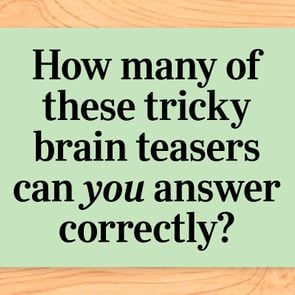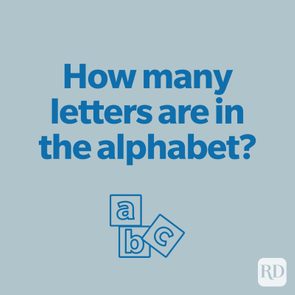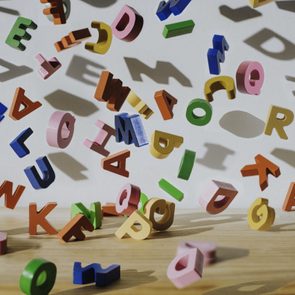How to Use WordleBot to Master Wordle
Updated: Jun. 22, 2024

The New York Times WordleBot will take your Wordle game to the next level. We explain the tool's new upgrades.
If you’re one of the millions of fans of Wordle, the addictive brain game, you already know that some puzzles can be real stumpers. But do you know about WordleBot and how to use it to improve your daily score?
WordleBot, like Wordle, is owned by the New York Times and is a handy tool designed to help you improve your game and keep your winning streak alive. For serious Wordle players, it’s an essential addition to the game. So, whether you’re new to Wordle or looking to make the most of WordleBot, read on. We’re also revealing WordleBot’s new favorite starting word and—spoiler alert—it’s no longer “SLATE.”
Get Reader’s Digest’s Read Up newsletter for more fun facts, humor, cleaning, travel and tech all week long.
What is WordleBot?
Back in April of 2022, the New York Times came out with the original WordleBot—”a tool that will take your completed Wordle and analyze it for you,” also known as your very own “Wordle assistant.” As of 2023, WordleBot is now WordleBot 2.0, a modified version of the tool complete with a new algorithm to help you become an even better Wordle player. That’s right, there’s a tool that will look over your completed Wordle and give you feedback, like your very own Wordle tutor.
Using WordleBot is not considered cheating, as it has no hand in picking the Wordle answers. Rather the algorithm allows WordleBot to calculate the probability of various English words as potential solutions, based on past puzzles and an encoded dictionary of 4,500 words known to the bot.
How does WordleBot work?
After completing the Wordle of the day, open WordleBot in a separate browser. The tool grades you on a scale of 0 to 99 in categories, including skill and luck, compared with the New York Times average. It will also compare the number of steps it took you to find a solution with the Times average. WordleBot’s thorough analysis will also outline each of your guesses along with alternatives you could have tried or indicate if your guess was the best possible one at that point.
And WordleBot doesn’t hold back with its feedback. It praises you on your best attempts—and also lets you know if your guess wasn’t its favorite, to say the least.
After grading your skill, WordleBot will compare your solutions with its own and give you a rundown of your fellow Wordle players’ most common guesses. It will also break down other players’ attempts to solve the puzzle.
How can I make the most of WordleBot when playing Wordle?
The New York Times doesn’t expect you to play exactly like WordleBot, but it does have some tips on how you can use the tool to sharpen your puzzle-solving skills. Here are two suggestions:
- Pay attention to WordleBot’s recommendations for your second word. These suggestions can help you figure out which letters or positions will rule out the most remaining answers.
- When you think there are fewer than 10 possible solutions left, try to pick a word that will help you narrow them down. Often, this means guessing a word that shares as many letters as possible with the remaining options.
What’s the best opening word for Wordle?

When WordleBot was first introduced, it recommended “CRANE” as the best starting word on Wordle. After that, it was “SLATE.” As of January of 2024, the best word to start with on Wordle, according to WordleBot, is “TRACE” and in hard mode, it’s “TROPE.”
This change follows an analysis of 515 million Wordle games played over the past year. Even with this update, the two previous starting guesses remain strong contenders. Other words like “CRATE” and “SlANT” are also some of the best words to start with on Wordle. Knowing the most common letters in the English language may also help you minimize your Wordle guesses.
Is WordleBot free?
Unfortunately, WordleBot is for Times Games, News or All Access subscribers only. However, you can still access Wordle for free. And for the cheapest access to WordleBot, the Times Games subscription is just $1.50 per week (billed as $6 every four weeks) and $50 per year (billed annually).
Now that you have a new tool to change the way you Wordle, happy playing!
Why trust us
Reader’s Digest is known for our humor and brain games, including quizzes, puzzles, riddles, word games, trivia, math, pattern and logic puzzles, guessing games, crosswords, rebus, hidden objects and spot-the-difference challenges. We’ve earned prestigious ASME awards for our entertainment content and have produced dozens of brainteaser books, including Word Searches, Word Power, Use Your Words, Fun Puzzles and Brain Ticklers, Mind Stretchers, Ultimate Christmas Puzzles and more. Our 10 published volumes of Mind Stretchers were edited by Allen D. Bragdon, founder of The Brainwaves Center and editor of Games magazine. For this story on the world’s hardest maze, Reader’s Digest spoke with Julie E. Bounford, PhD, the author of The Curious History of Mazes. Read more about our team, our contributors and our editorial policies.
Sources:
- New York Times: “WordleBot F.A.Q.”
- New York Times: “WordleBot’s New Preferred Opening Word: Trace”
- New York Times: “Introducing WordleBot 2.0”





















